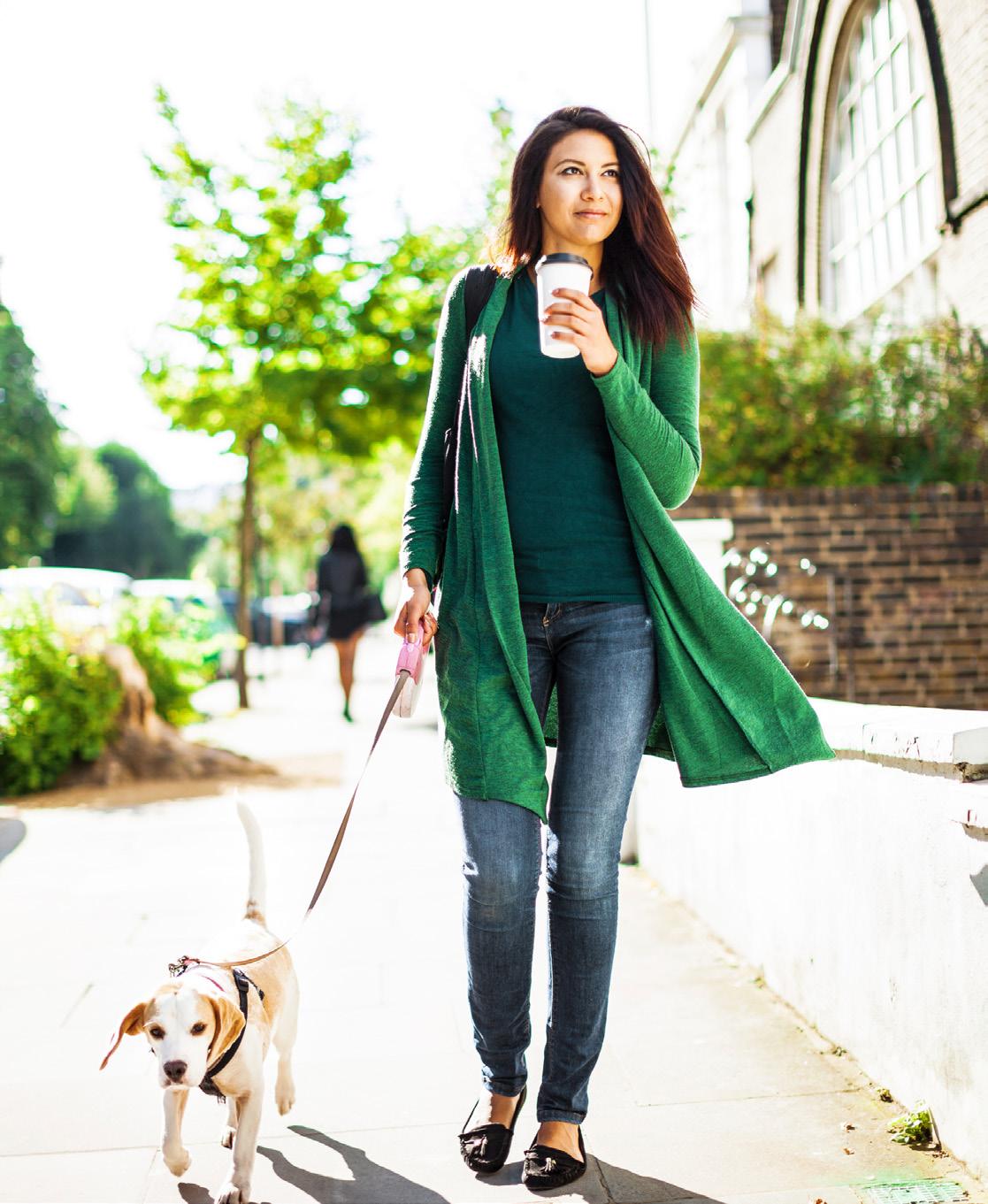
4 minute read
Fire
Part of living in a community is understanding that your actions may affect your neighbors. Always take extra care to ensure that you are safe when in situations with higher risks of starting fires, such as cooking. Fire extinguishers are located at a close proximity to each door throughout the property. Here are a few safety precautions to follow to keep you and your neighbors safe:
Personal Fire Safety In The Event Of A Fire
■ If you experience a fire in your apartment, exit the building immediately and go to the nearest safe location. Notify 911 immediately.
■ Before exiting through any doors, feel the handles to see if they are hot to the touch. If so, try to find another safe way to exit the apartment.
■ If a planned escape route is too dangerous to exit, stay where you are and stuff any doors or vents with wet towels to keep the smoke from entering. Turn the HVAC off, stay low, and place a wet towel over your nose and mouth.
■ Wave a bright cloth out of a window to let others and the fire department know that you are there.
Handicapped Evacuation
■ Each person should have a “buddy” assigned to assist them in the event of an evacuation.
■ It is important that the “buddy” remain with the person until the emergency is over.
■ Ask each person the best way to assist them to the stairwell and lead them to safety.
■ If it becomes necessary to move someone down the stairs, various lifting and carrying techniques can be utilized; ask the person the best way to assist them.
■ When disposing of grease, always let it cool before throwing it away in the garbage. Pour it into a can or cup to make disposal easier.
■ If cooking grease catches on fire while cooking, turn off the range, place a metal lid on the pot or pan, and pour baking soda onto the fire.
■ Monitor young guests carefully and make sure they do not turn on the range.
■ Avoid cooking while intoxicated, medicated, or fatigued.
■ No outside grilling is permitted on the property (except in the pool area).
■ Do not remove your smoke alarm or other fire protection mechanisms. If you encounter any problems with your alarm system, please call the Management Office immediately.
■ Do not put gas-operated tools or vehicles inside the apartment or the stairwells.
■ Smoking is prohibited on the property.
■ Fire laws and insurance requirements prohibit the use of BBQ grills in breezeways, balconies, or patios, as well as candles or anything with an open flame.
■ Lighter fluid and flames are potentially hazardous to most items, including boxes, furniture, and the building itself.
Weather
Freezing Weather
In the event of severe freezing weather, A “Freeze Alert” Sign will be posted. Some helpful tips to limit damages in the case of a freeze include:
■ Dripping both the hot and cold water faucets.
■ Turn your thermostat above 60 ° F.
■ Opening cabinets where any pipes are located.
■ Avoid slick terraces and walkways.
Flash Floods
■ Notify the Management Office if any particular area of the community needs attention.
■ Contact the Management Office ahead of time if you plan on going out of town.
Flooding can happen as a result of excessive rain or as an after-effect of a hurricane or tropical storm. Here is what to do if there is flooding in your area:
■ Avoid walking, standing, or driving through flood waters. Just six inches of moving water can knock a person down, and one to two feet of water can move a vehicle.
■ Move to higher ground as quickly as possible. Move your vehicle to higher ground if you are on a first floor parking level or parked in a flood zone.
TORNADOES AND SEVERE STORMS
■ If you are in your car and water is rising around you:
■ If the water is not moving, abandon the car and move to higher ground.
■ If the water is moving, stay in the car and do not enter the moving water.
■ Watch out for debris and areas that may have eroded due to flooding.
■ Take pictures of damaged property for your insurance purposes.
Tornadoes and severe storms often strike when LEAST EXPECTED. As you take cover, here are a few ways to protect yourself and your home:
■ Secure or bring inside outdoor furniture, plants, and decorations to prevent them from blowing away.
■ Turn off and unplug computers, televisions, and other electrical equipment, so they are not damaged by a voltage surge.
■ Make sure all doors and windows are latched tightly.
■ Stay clear of any windows and/or patio doors that might shatter.
■ If a tornado is coming, take cover in an interior hallway or room on the lowest floor of the building. Small interior rooms, like closets and bathrooms, are usually the safest.
Maintenance Emergencies
PHONE NUMBER: (469) 828-1139
You can make emergency maintenance requests at any time by using the number above to call about your concern. The items considered as emergency services are listed below. These items have increased priority.
Emergency Services
■ Loss of utility service (water, electricity) that is not a grid-wide or provider issue
■ Any major plumbing issue, inoperable toilet (one toilet in the apartment), or major leaks
■ Loss of a necessary appliance (refrigerator or range)
■ Sewer leaks
■ Inoperable gates
■ Non-working A/C when outside temperatures are over 80° F
■ Non-working heat when outside temperatures are under 50° F
■ Any threatening situation, unsecured door or window, or anything requiring first responder or police/emergency personnel (fire, severe weather, flood, etc.)










